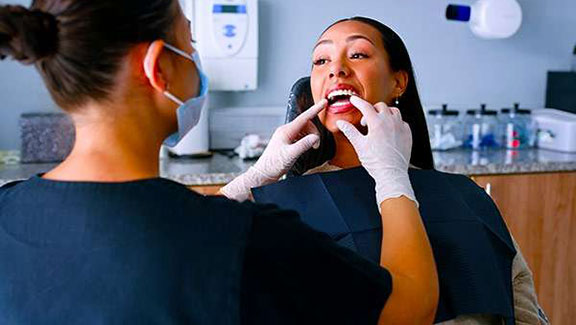Stroke

Did you know that there’s a connection between stroke and gum disease? Your mouth has thousands of bacteria, and some can affect other parts of your body. When bacteria from the mouth enter the blood vessels, they attach to fatty plaques in the heart’s blood vessels (coronary arteries). This buildup may lead to heart attacks or strokes. In fact, people with gum disease have two to three times the risk of stroke, heart attack or other serious cardiovascular events.
If you have a history of stroke, make good oral health a priority
If you’ve had a stroke, maintaining good oral hygiene can help you avoid experiencing additional complications. According to the American Heart Association, if a critically ill patient doesn’t maintain regular dental care following a stroke, they have a higher risk of developing ventilator-associated pneumonia.
Good oral health habits not only prevent gum disease, they can also help minimize your risk of developing or worsening other conditions, including additional strokes. So, it’s important to brush after every meal and before bedtime and floss at least once a day.
Getting professional dental cleanings regularly also helps, because when plaque accumulates, it can harden and turn into tartar. Once tartar has formed, only your dentist or hygienist can remove it.
If you notice any symptoms of gum disease, make an appointment with your dentist. The sooner you seek care, the better your chances of reversing any damage and protecting your overall health.
Enjoying better total health starts with a visit to your dentist
All you need to do is schedule an appointment with a dentist in your plan’s network. They will provide you with preventive dental care that can help you have a healthy smile and body.
To find a dentist in your network, sign in to regence.com or the Regence app and select Find Care.